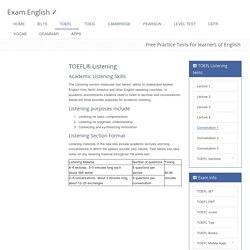

Language Learning. World’s Top Languages. 30+ Reasons Why We Don't Succeed In Learning Languages. Today’s post is my serious attempt to collect every possible reason why we don’t learn a language in list format, and to offer possible suggestions to overcome them, or to request your solutions to these problems!

I will be updating this list to add new reasons based on your comments. (Note that in the post after this, I am looking for the opposite to reasons why we can’t and I want to hear your success stories that could potentially inspire millions of people!) I am genuinely going to try to get the number of reasons and their possible retorts up to the high double digits, because I want there to be no more excuses for us to remain monolingual throughout our lives. Because of this, I will start with what I feel are the main reasons I have heard, or that I believed at the age of 21, and offer a quick thought or link(s) to a possible solution to or reframing of the problem. So without further ado, here are some reasons I have come across, and my suggestions for them. 1. 2. 3. 4. 5. 6. 7.
Fluent In 3 Months – Language Hacking Tips. Learn 40 Languages for Free: Spanish, English, Chinese & More. How to learn languages for free?

This collection features lessons in 48 languages, including Spanish, French, English, Mandarin, Italian, Russian and more. What Is The Hardest Language To Learn? One question that’s been asked several times is, “What is the hardest language to learn?”

After some extensive research, we’ve discovered that the answer can be quite complicated. It’s complicated because the answer is largely subjective (opinion) and it also depends on what your native language is. The answer for one individual may be different for another. Your Native Language. Language-learning-difficulty-infographic. Indo-european-language-infographic.jpg (JPEG Image, 1062x678 pixels) - Scaled (94%) Language Hacking Guide. You don’t have to be “gifted” to learn a new language, but you do have to be smart about how you learn it.

Hi! When you’ve watched the video above and are ready to join the thousands of other language hackers who are using the Fluent in 3 Months PREMIUM package as an unconventional approach to learn languages quickly, click the button below. If you’ve got any questions after watching the video, check out the “Frequently Asked Questions” page. Phonetics (articulation) I Learned to Speak Four Languages in a Few Years: Here's How.
» How to Learn A Language in 90 Days. ‘If you talk to a man in a language he understands, that goes to his head.

If you talk to him in his own language, that goes to his heart.’ ~Nelson Mandela Editor’s note: This is a guest post from Maneesh Sethi of Hack The System. I still remember the happiest moment of my life. I had decided to throw a party for my Italian friends while living in Florence, Italy. I don’t know if you know this, but telling jokes in another language is one of the most harrowing experiences you can imagine. I began the joke. Halfway through the joke, I began to get flustered. At the last minute, I remembered and completed the joke. Until today, that memory continues to be one of the happiest moments I’ve ever experienced. The Benefits of Bilingualism Becoming bilingual opens up a whole new world—a world of different people, of different cultures, of different emotions.
Learning a second language has many cognitive benefits. How to Learn (But Not Master) Any Language in 1 Hour (Plus: A Favor) Learn a Language in 10 days. Phrases in 5 common languages to know when traveling in Europe. Traveling abroad this summer?

These helpful phrases will open doors and help you gain immediate acceptance. You don't need to be fluent in the language of the country that you are traveling to, but learning some key phrases makes a great impression. If someone hears that you're trying to speak the language, they will give you their respect and help. From saying hello to asking how much something cost; knowing some important phrases will set you up for an amazing trip.
Its also a great way to meet and connect with people, you can find a secret spot that only the locals know or the best place to eat in town. Your pronunciation doesn't have to be perfect, all that matters is that your trying and that means a lot the locals. Overcoming the Tower of Babel. How many words do I need to learn? How many words do I need to learn? Home > Guide > Vocabulary > How many words? One of the most common questions I get asked is 'How many words do I need to learn? '. The answer is of course to learn any many as you can, but I can be more precise. Some words are very common while others are rarely ever seen. This means that you can understand a large part of mosts texts with only a limited number of words. These lexemic frequency dictionaries were made during the Cold War for the purpose of computerized automatic surveillance of other countries - especially Russia.
I have one such dictionary in digital format for Russian. This shows clearly that vocabulary frequency follows both the law of Pareto (80% of occurences by only 20% of words) and the law of diminishing returns. So yes you can probably read any text with only 3000 or 5000 words, but you will always miss some key words. Learning, powered by imagination. - Memrise. The Mixxer. Got rhythm? You can learn languages and reading better. Mechanical metronome (credit: Wikimedia Commons) Northwestern University researchers have found biological evidence linking the ability to keep a beat to the neural encoding of speech sounds.

The study has significant implications for reading, according to Nina Kraus, director of Northwestern’s Auditory Neuroscience Laboratory. The study demonstrates that accurate beat-keeping involves synchronization between the parts of the brain responsible for hearing as well as movement. The experiment To investigate the relationship between beat-keeping and auditory processing, 124 Chicago high school students visited Kraus’s lab and were given two tests. In the first, they were asked to listen to a metronome and tap their finger along to it on a special tapping pad. Measuring the accuracy of tapping to a metronome rhythm (top: metronome sound: bottom: auditory brainstem response electrical response) (credit: Adam Tierney et al. Beat-keeping requires coordination of hearing and movement References: Salsa. Listening.
Academic Listening Skills The Listening section measures test takers’ ability to understand spoken English from North America and other English-speaking countries.

In academic environments students need to listen to lectures and conversations. Below are three possible purposes for academic listening. Listening purposes include Listening for basic comprehension Listening for pragmatic understanding Connecting and synthesizing information Listening Section Format Listening materials in the new test include academic lectures and long conversations in which the speech sounds very natural. ETS®, TOEFL®, TOEFL iBT® and TOEFL Junior® are registered trademarks of Educational Testing Service (ETS). 2014 © Exam English Ltd. Reading. Academic Reading Skills The Reading section measures test takers’ ability to understand university-level academic texts and passages.

In English-speaking academic environments students are expected to read and understand information from textbooks and other types of academic material. Below are three possible purposes for academic reading. Structure & Written Expression. Serenity. How to learn 50+ vocab words a day. Learning Multiple Languages At The Same Time. Learning Multiple Languages At The Same Time.

How I Learned a Language in 90 Days. Phonemic chart. - StumbleUpon. This Is Why You Should Stop Thinking About Learning Languages But Start To Learn Now.